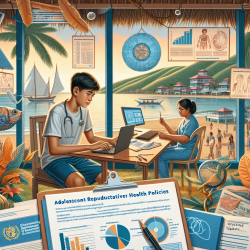The study evaluated whether current policies in the Philippines align with the World Health Organization (WHO) recommendations on ensuring human rights in contraceptive information and services. The findings revealed that while some policies are in agreement, others are restrictive due to conservative religious influences.
Key Findings and Recommendations
- Agreement with WHO Recommendations: Philippine policies are in agreement with WHO recommendations on acceptability, participation, accountability, and quality. These policies include provisions specific to adolescents, ensuring they receive tailored and respectful care.
- Partial Agreement: The policies are partly in agreement with recommendations on non-discrimination, availability, accessibility, informed decision-making, and privacy. However, restrictive measures such as the requirement for parental consent limit adolescents' access to services.
- Restrictive Policies: Conservative beliefs influence certain restrictive policies, such as the prohibition of emergency contraceptives in public hospitals and the need for spousal consent for permanent contraceptive methods.
Implementing Research Outcomes in Practice
Practitioners can take several steps to improve their skills and services based on the study's findings:
- Advocate for Policy Changes: Encourage the further elaboration and liberal interpretation of policies that align with WHO recommendations. This includes supporting comprehensive sexuality education and updating guidelines to remove abstinence-centered content.
- Engage Adolescents in Decision-Making: Involve adolescents in the development and implementation of SRH programs. Provide training and ongoing support to empower them to make informed decisions about their health.
- Enhance Service Accessibility: Develop strategies to improve access to contraceptive services for adolescents, particularly those who are legally qualified to receive such services. This includes offering services in private and NGO facilities.
- Provide Comprehensive Education: Shift from an abstinence-only framework to comprehensive sexuality education that covers all aspects of SRH, including contraception.
By implementing these recommendations, practitioners can ensure that adolescents receive the care and information they need to make informed decisions about their reproductive health. This not only improves individual outcomes but also contributes to the overall well-being of the community.
To read the original research paper, please follow this link: Assessment of country policies affecting reproductive health for adolescents in the Philippines.










